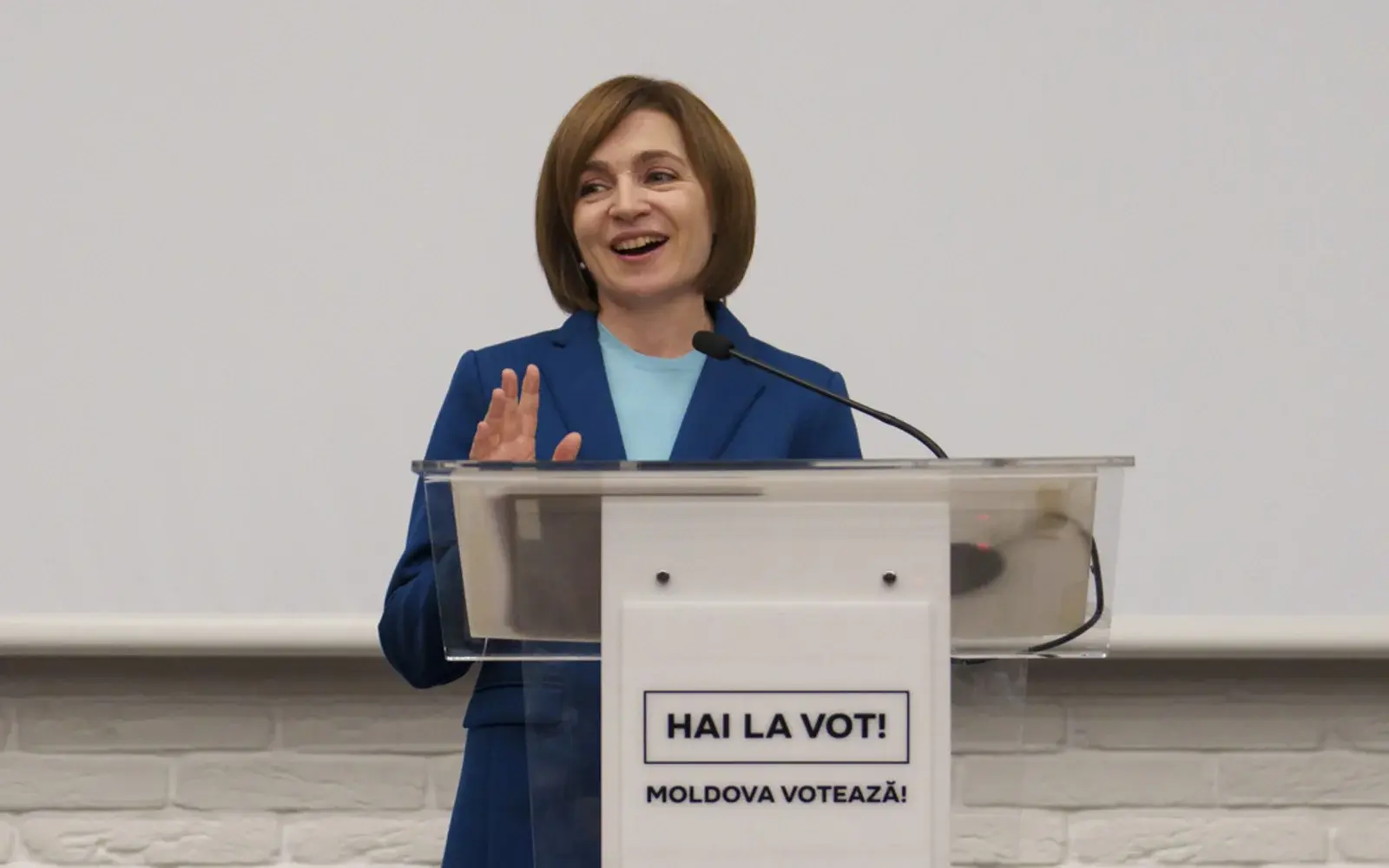Photo: President Maia Sandu after her Election Victory – FMT
On Sunday November 3, incumbent president Maia Sandu won the second round of presidential elections in Moldova. Two weeks ago, she already won the first round of the election, gaining 42% of the votes, while Alexandr Stoianoglo became second with 26%. It was, however, definitely not a given that she would win in the second round, given that most opposition parties backed Stoianoglu and her EU constitutional referendum only narrowly passed with a smaller margin than 1% of the votes. The turnout was 54.3%.
You can read our entire report on the first round of the presidential election and the EU constitutional referendum here.
Results
Sandu, from the Party for Action and Solidarity (PAS), faced off against Alexandr Stoianoglo, an independent candidate who was backed by the Party of Socialists (PSRM). Sandu achieved 55.4 % of the votes, while Stoianoglo only attained 44.6 % of the votes.
Interestingly, if you only count the votes that were cast in Moldova itself, excluding votes from the diaspora abroad, Stoianoglo would have won with 51.2% of the votes. Almost 20% of the votes came from abroad, where an overwhelmingly 82.8% of the votes were cast for Sandu.
At the presidential election in 2020, Sandu won with almost 58% of the votes in the second round. This is not a very big difference from this year’s results. Moreover, last time the candidate who became third in the first round endorsed Sandu, while he refused to endorse either of the candidates this time.
You can find all the results of the election here.
Election Interference
Just like during the first round of the election, there were again many reports of Russian interference, although it seemed to have been less effective than during the first round. Sandu and her supports claimed that there was a massive amount of Russian interference and the European Commission, in a joint statement, congratulated Sandu, “despite unprecedented interference by Russia, including with votebuying schemes and disinformation.”
Election observers from the OSCE also reported Russian interference, stating that “the challenges posed by foreign interference and vote-buying continued to reverberate during the run-off campaign.” However, they also concluded that measures were taken and that the overall election progress was well managed.
The opposition
The PSRM has stated that it does not see Sandu’s victory as legitimate, calling her the “president of the diaspora,” given that she only won due to voters from abroad. Russian representatives have also made a similar statement, arguing that Sandu abused her power by having more polling stations in the European countries than in Russia. They even claimed that Sandu falsified the diaspora vote to secure her victory. In none of the observation missions any proof for these claims were found.
What now?
In the summer of next year, parliamentary elections will be held in Moldova. This will probably become the real test for Sandu and her government. Sandu’s party currently has an absolute majority in parliament, but it is not very likely that they will retain this position, especially as various opposition parties again eye to bundle their strength to offset PAS’ rule in Moldova. It makes a coalition government likely from 2025 onwards, with a stronger position for Moldovan parties that benefit from PAS’ weakened image on socio-economic issues, especially regarding the high inflation in the country.
Written by Guido Boven



